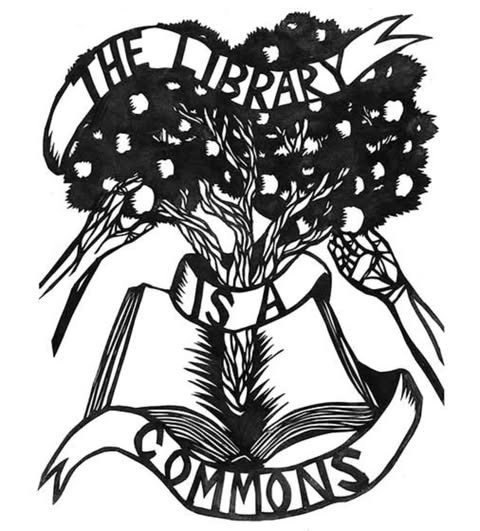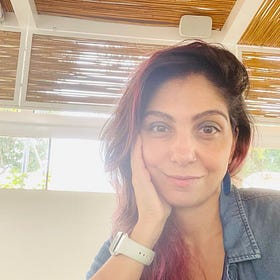Domination begins at home
How unschooling, mothering and the genocide of Palestinians are connected

This past weekend, I attended the online Unschooling Summit (if you missed it, you can still access all the recordings for a fee). I’m still catching up on some of the roundtables and interviews, but hands-down my favourite sessions were the ones that dealt with issues of unschooling and intersectionality, or unschooling and decolonisation.
In an increasingly interconnected world, where the coffee I buy in the morning is directly connected to the person growing it an ocean away, or the taxes I pay are being funnelled to send arms to Israel so they can kill Palestinian children, we should be engaging with issues of how our decisions to educate our children, and the ways we do it, are connected to the wider social and political context we exist in.
I want more of these conversations.
In the Unschooling and Decolonisation workshop, Ieishah Clelland-Lange and Meghan Suniga-Davies asked us what we believed were the limitations of unschooling as decolonisation.
I used to believe that if I raised my child in a home that stared power imbalances squarely in the eye and unflinchingly spoke about oppression and how we build alternatives to our harmful systems, then they too, would go out into the world and make it a better place.
Oh, how idealistic (or perhaps simply ignorant) I was. It’s not that I don’t believe partnering rather than dominating our children is important; of course I do. It’s not that I don’t believe it’s crucial or that it is a way to make change; mothering IS a force for social change.
It’s just that I no longer believe it is enough.
I don’t mean this to sound like, “You’re not doing enough!!” I know these issues do not have individual solutions, but rather collective ones. I don’t want to frame this as us falling short in any way - that’s not it.
And, this is a serious limitation to unschooling, consent-based parenting and living in partnership with our children. It’s just not enough all on its own, and we shouldn’t fool ourselves into believing it is.
It’s not enough because the problems are so big. And it’s also not enough because it assumes that we have a degree of control over who our children turn out to be.
We may raise our children without domination, and perhaps they will be less likely to go out into the world and be complicit in oppression - but do we know this will be true? No, we don’t. Our children are their own people and they will make decisions about their own lives that might not align with ours.
Don’t get me wrong. Carework and mothering and home educating can still be radical tools for change. It’s just that I think we need to separate our own actions from the ones we hope our children will take.
So when we talk about anti-capitalist unschooling, this might look more like us modeling anti-capitalism than hoping our children will one day be anti-capitalist.
This brings me to the continuation of the on-going genocide of the Palestinian people. How do I walk around believing I am uschooling as decolonisation, while children are murdered in their homes? While journalists are targeted?
It feels like my big words about unschooling are falling terribly short. Like the things I say about mothering as resistance are too small. And I am in two minds about this: I know that change is slow, and I know that I am doing what I can, AND I can’t get past how my children are free, every day, and Palestinian children fear for their lives. I can’t get past how my children get to be free, in some sense BECAUSE other children are not. And that not what liberation looks like.
Others have written about this dissonance way more eloquently than I am able to, but I wanted to voice my incomplete thoughts on the morning after a summit where so many parents and educators talked about deeply, unconditionally respecting children, while there are literal bombs being dropped on Gaza.
I wonder whether we are still able to muster the same outrage for the killing of children that we have when our neurodivergent child is excluded from a classroom or group, or when a relative tries to force our child to hug them, or when we read of any other injustice befalling children within our own borders.
I suppose I am here to keep telling myself, and you all, that these are all violations of consent. That consent is relevant at home, as much as it is relevant in school, in our communities, and everywhere else. That war is a violation of a child’s right to be safe and exist, a violation of their personhood and sovereignty. This too, is about consent.
How do we bridge the distance between the practice of consent in our homes, or our understanding of adultism and of children’s rights, with the violations being inflicted by our tax dollars on Palestinian children (and also, perhaps more indirectly, on children all over the world)?
The Unschooling and Decolonisation workshop ended with a really crucial question (this is as close to a quote as I could remember): Where do I still hold on to hierarchical or compliance-based ideas in parenting and/or the world?
Let’s do this together, then.
I still exist in a society that claims to protect children at home whilst claiming other children are terrorists. How does that work? What sort of ideas about compliance have we internalised that allow us to believe that our children (and by our, we usually mean white) are somehow innocent, in need of protection, while other people’s children (which is code for Black or brown or otherwise marginalised) are somehow a threat. Are we saying that compliant children are worthy of existing, whereas those who represent resistance are not? Are we still attached to an idea of a hierarchy of childhood, where some children are more worthy of existing, more worthy of respect, than others?
In what ways are we still complicit in acts of colonisation? When I use my authority to override my child, in big and small ways (and who decides what is big and what is small), am I enacting colonisation in my home?
Am I literally the dominant power in my home, and how do I wield this power in ways that feel like a misuse of it? How do the ripples of my domination of my children expand out into the world, how do they embolden those in positions of power like teachers, shop-keepers, doctors, legislators, politicians, to essentially replicate this same dynamic on a bigger scale? Am I enabling colonisation of my children in ways I don’t perhaps recognise yet?
Like David Graeber and David Wengrow wrote in their book A Brief History of Everything, “Domination begins at home.” I don’t know if this is really what they meant, but I have never been able to let this statement go. If domination began anywhere specific, then it seems extremely likely that it was between an adult and a child.
How do I still, deep down, believe that my child’s rebellion is not valid? That I am right to maintain a degree of authority, and validated in labeling “bad behaviour”? How do I still, deep down, believe that when my child doesn’t do as I ask, it’s because they are intentionally misbehaving?
How do I still, deep down, believe that violence is never justified, even as an act of resistance from oppression? When my child rebels, do I still condemn the way they do it, rather than question what they are rebelling against? Rather than recognise that perhaps I never gave them a choice, or I made it so hard for them they felt like they had no other choice. Do I still view a compliant population as the only population worthy of not being bombed and displaced?
And so here we are, back at the way our mothering, caring, and loving is a template.
Will it be enough for us to refuse to colonise our children? Will it be enough for us to hold up signs and shout for the decolonisation of Palestine, and of every other settled land?
All I know right now, is that for me, it has to be a matter of both. The two things need to happen alongside one another. I need both tracks, running in parallel, to be able to move forward. To be able to believe I can make a difference.
Last week I signed into zoom meeting after zoom meeting, searching for education, validation and community over my decision to treat my children like people. Next weekend, I will stand with a small group of people, wielding a sign that says “All children are our children,” hoping to find others who also believe Palestinian children are people.
Thank you for reading!
Please share and like and comment if this piece spoke to you in any way.
Fran x
If you enjoyed this piece, you might also like to read these:
“What do I tell my boys?”
Today I am sharing a post written by my friend and fellow unschooling mother, Dana Huraimi(find a bio at the bottom of the post).













Touching on many things that have been in my head too. I also joined the summit. I couldn't join that workshop live, but watched it afterwards. Thank you for this reflection, it's helping me to shape mine.
So much to say on this topic Fran! So many important points you mentioned in your piece, thank you for writing this. If only more people can see the connection.